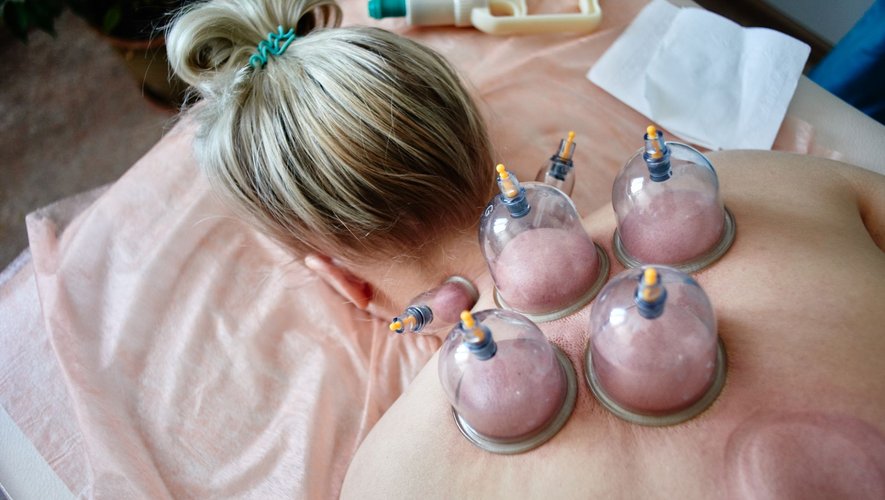Coming from traditional Chinese and Arabic medicine, cupping therapy is on the rise, especially among some high-level athletes. But what are we talking about?
A few days ago, footballer Karim Benzema appeared on his Instagram account lying on his stomach, seven suction cups clutching his back. Before him, in 2016, swimming champion Michael Phelps won his 21e gold medal by winning the 4×200 m relay final at the Rio Olympics. He bore round, purplish marks on his body, also from the use of suction cups.
How to perform cupping therapy?
This ancestral practice, called cupping therapy or hijama or cupping therapy, is present in traditional Chinese and Arabic medicine. There are several techniques. This consists of applying suction cups – most often made of glass but also silicone or bamboo – to part or all of the body. The suction cups thus suck the skin on the area where they exert a depression. The removal of air from the suction cup, which produces the suction phenomenon, is carried out using a flame or mechanically. The air is then extracted with a manual pump.
According to their followers, cupping therapy would have multiple virtues, analgesic, anti-inflammatory in particular. It would improve blood circulation, the lymphatic system, muscle recovery… In high-level sport, cupping is used for preparation and physical recovery.
Wet or dry cupping
We talk about dry or wet cupping therapy. The latter consists of making a micro-incision in the skin, with a needle or a scalpel. Blood will then accumulate in the cup. In addition to the effects mentioned above, “this mildly painful method encourages the body to trigger a healing process, which eliminates toxins and releases endorphins causing intense relaxation”can we read on the site of the practice of sophrologist and naturopath Karima Hassani Yanouri.
Practiced in France in osteopathy, massage or traditional Chinese medicine practices, wet cupping is however prohibited for all these professions, an incision still being considered a medical act.
A controversial practice
As for the effectiveness of cupping therapy, the practice lacks conclusive scientific evidence. Thus, the national council of the order of physiotherapists banned it. “The practice of cupping being, to date, insufficiently tested and putting the patient at an unjustified risk of injury (bleeding, burning, etc.), the physiotherapist cannot offer this process in accordance with the provisions of articles R.4321-87 and R. 4321-88 of the public health code”, reads a notice dated March 18, 2021; those articles prohibiting quackery and medical devices that put the patient at undue risk.
In August 2022, the collective of health professionals NofakeMed, which warns of the danger of false new information in medicine, tweeted the following message: “Cupping has no rational basis and does not improve your health or athletic performance. Beware of Instagram ads and their misleading claims.”

